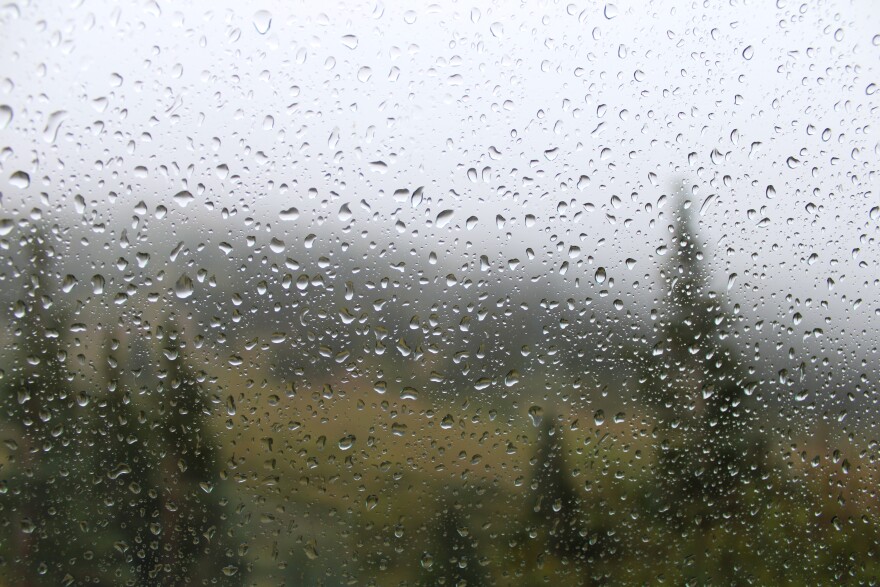A technology to increase rainfall is coming to Colorado for the first time.
A Florida-based company is setting up cloud seeding equipment to add water to some fields in Weld County. The company behind the project — and the state agency that permits it — hope that this rollout of what's known as warm-weather cloud seeding is the beginning of a larger trend.
Andrew Rickert, weather modification program manager with the Colorado Water Conservation Board, called this cloud seeding project a “trial run.”
“We'll see how the locals like it,” he said. “If they’re getting more rainfall and getting more crops, I can see this definitely catching on and spreading around the state, especially in these times of drought.”
Rickert said the technology can increase annual rainfall by 15 percent to 17 percent.
While the work to boost rainfall is new, according to Rickert, Colorado has run cold-weather cloud seeding technology for years. By adding snow in the state’s mountains, that work is aimed at increasing the amount of water in rivers during the spring melt. It is funded by the state and is only possible when temperatures are below freezing.
Warm-weather cloud seeding uses technology that originated in the 1950s and has been deployed in countries such as China, Jordan and Oman, as well as the state of Texas. It does not use chemicals or aircraft, like some forms of cold-weather cloud seeding. Instead, it sends out an electrical charge from the ground that can cause small, naturally-occuring particles to ascend into clouds and make water condense and fall as rain.

Some programs to add more snow have received backlash related to their use of silver iodide, which experts say has been proven safe through decades of testing. Randy Seidl, CEO of Rain Enhancement Technologies, said warm-weather cloud seeding does not use any chemicals and may be quicker to catch on.
“We’re hoping to show some success and then expand,” Seidl said.
The demo program run by Seidl’s company would be different from snow cloud seeding programs in Colorado, which are generally funded and operated by a branch of the state government.
“We've never had anything like this where a company comes in fully funded, just to demonstrate their technology and hope it catches on in the future,” Rickert said.
These new rain enhancement operations will target an area below Colo. Highway 14 and above County Road 16 ½ , and between Weld County Road 55 and Weld County Road 63.
Despite the fact that the cloud seeding will be run by a private company, operations will still be strictly regulated by the state, which is in the process of issuing permits for Rain Enhancement Technologies.
That includes a provision meant to prevent cloud seeding from making flooding worse if there’s a big storm on the way.
“We automatically turn down, turn off our device right away,” Seidl said. “So if there's going to be excessive rain, we can't make it worse.”
This story is part of ongoing coverage of water in the West, produced by KUNC in Colorado and supported by the Walton Family Foundation. KUNC is solely responsible for its editorial coverage.






